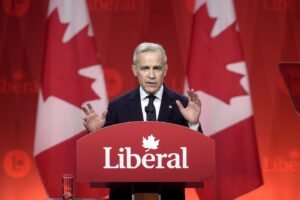The Trump Justice Department said on Monday, January 27, 2025, that it had terminated more than a dozen employees with ties to criminal investigations into former President Donald Trump. The mass firings, overseen by Acting Attorney General James McHenry, prompt questions about institutional integrity and political motives behind such blanket personnel actions.
This article discusses the background, consequences, and reactions to the firings for the public to know what this will mean for the Justice Department and American democracy
Trump Justice Background: Dismissals
The dismissal came as a surprise move in this already turbulent Justice Department. Targets were career prosecutors at Jack Smith’s special counsel team. They had been the leaders of the investigations into alleged criminal conduct by Donald Trump.
Traditionally, career officials in federal agencies, including the Justice Department, are expected to remain apolitical, providing continuity across administrations. However, the decision to fire these prosecutors suggests a break from convention, igniting concerns of a politically motivated purge.
Why Were These Employees Fired?
These firings are part of a broader sweep to eliminate anyone who the former president perceived to be disloyal,” said an anonymous Justice Department official. Critics point out that it undermines the independence of the Justice Department because essentially, civil servants are being punished for participating in politically sensitive investigations.
This step follows similar ones, like the transfer of top officials in divisions, and sets off alarm bells on a bigger scheme to realign the department’s leadership towards loyalists of Trump.
Effects on the Trump Justice Department’s Autonomy
Typically, people view the Department of Justice as an institution immune to partisan political influence. Mass firings of career prosecutors that are associated with high-profile probes undermine this premise and may undercut public confidence in the department’s impartiality.
Legal scholars cautioned that such conduct may deter career government employees from continuing to pursue investigations that are particularly sensitive politically lest they face consequences. This might eventually hobble future inquiries, especially against public officials and matters of extreme political sensitivity.
Trump Justice Responses to the Firings
Public Outcry
The firings have drawn swift criticism from legal experts, former Justice Department officials, and political commentators. Many view the move as an attempt to intimidate federal employees and prevent accountability for those in power.
Former Attorney General Sally Yates described the decision as “a dangerous precedent that threatens the very fabric of our democracy,” urging Congress to investigate the firings.
Republican and Democratic Reactions
The reaction of lawmakers has been sharply divided along party lines. While some Republicans have praised the move as necessary to “clean house” in a biased Justice Department, Democrats have condemned it as a blatant abuse of power.
House Minority Leader Hakeem Jeffries called for immediate oversight hearings, saying, “This is nothing less than a coordinated attack on the rule of law and the principles of justice.”
What Does This Mean for Special Counsel Investigations?
The firings have raised questions about the future of investigations into Trump and other high-profile cases. Special counsel Jack Smith, who led the investigations, resigned earlier this month, further complicating matters.
With key personnel stripped away, ongoing cases stand to be impacted by delays or even derailed altogether. Observers point out that removing institutional knowledge and expertise will undercut the Justice Department’s ability to pursue accountability.
Trump Justice Potential Legal and Political Consequences
Legal Challenges
The firings could prompt legal challenges from the dismissed prosecutors, who may argue that their termination violates civil service protections. Such lawsuits could bring the issue into the courts, potentially setting new legal precedents on the limits of executive power.
Political Fallout
Politically, the firings could widen divisions in Washington because the Democrats are likely to use this to fire up their base for the 2026 elections. On the other hand, the firings could strengthen the hands of Trump’s supporters who think these investigations are politically motivated from the very beginning.
FAQs
1. Why did the Justice Department fire these employees?
According to reports, the Justice Department has fired these employees for being allegedly disloyal to Donald Trump, particularly for their participation in investigations into the former president.
2. Who ordered the firings?
Acting Attorney General James McHenry ordered the firings, though details about the specific employees affected have not been fully disclosed.
3. What will this do to the Justice Department?
The firings raise questions about the independence of the department and may deter future prosecutors from taking on politically sensitive cases.
4. What was Jack Smith’s role in the investigations?
Jack Smith was the special counsel leading the investigations into Donald Trump. He resigned earlier this month, which has further complicated the future of these cases.
5. How have lawmakers responded to this decision?
There is division in lawmakers; the Republicans support it while the Democrats criticize it as a political purge. The call for oversight hearings has already started.
Conclusion
The decision by the Trump Justice Department to fire more than a dozen prosecutors involved in investigations into Donald Trump has drawn both outrage and debate over whether this move strikes against the independence of federal agencies. It echoes, rightly or wrongly, the administration’s bigger goals concerning reshaping governmental institutions, and it raises rather serious concerns regarding accountability and the rule of law.
With time, these firings may also have lasting consequences beyond the Justice Department as a whole: They will undoubtedly further erode the public’s confidence in the government and America’s democratic system of governance. Time will only tell if this is a passing episode or the point of turning for America’s future of governance.








Be First to Comment